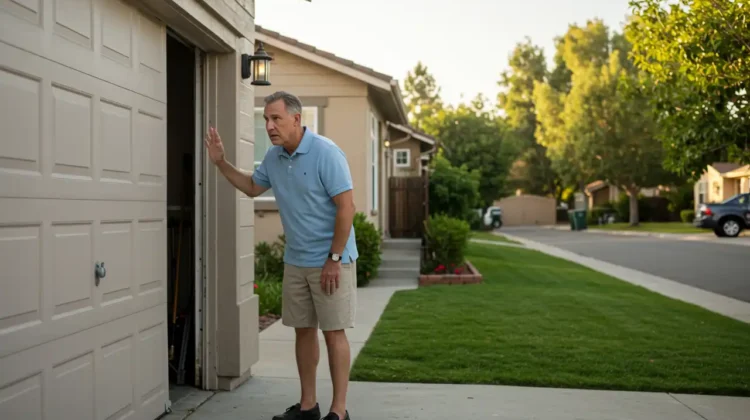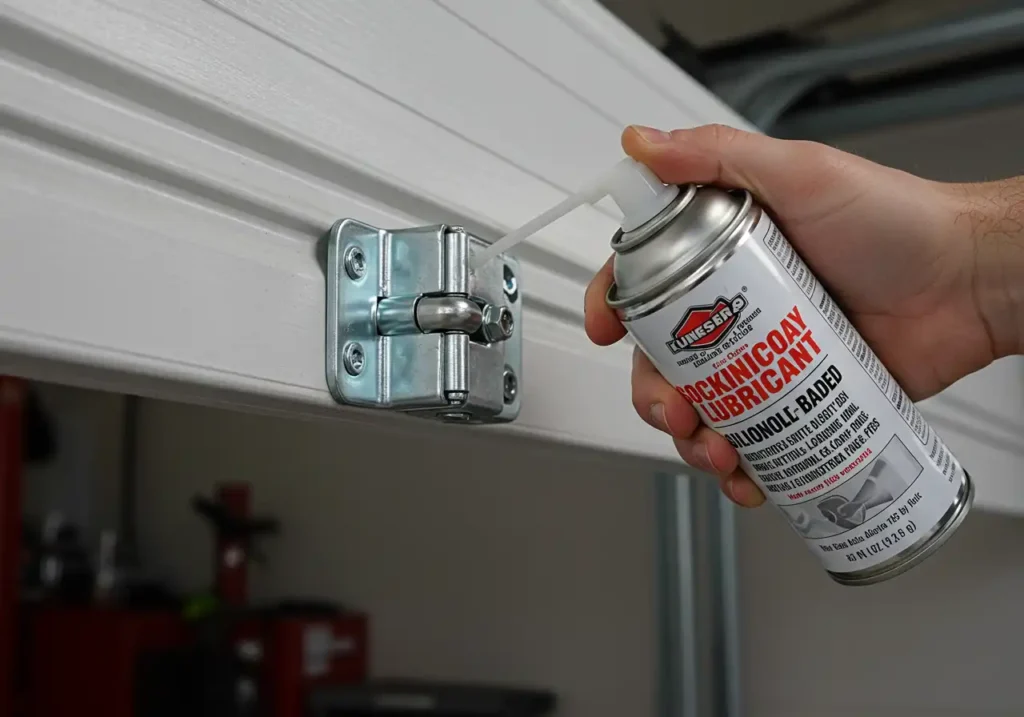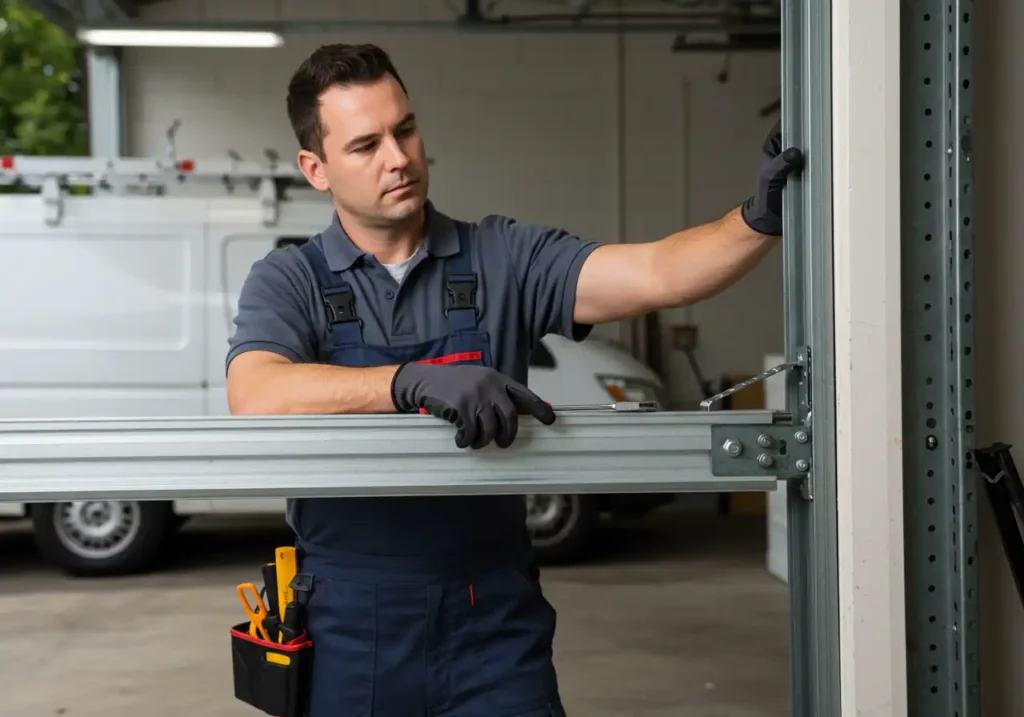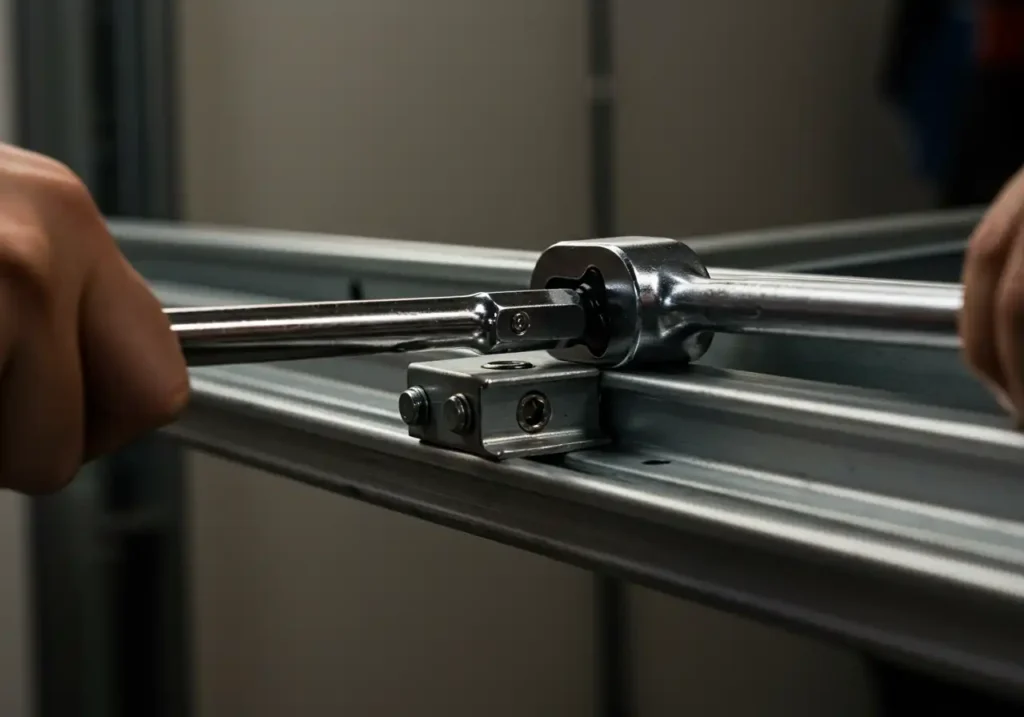
A noisy garage door can be more than just an annoyance — it can signal mechanical wear, improper lubrication, or even serious structural issues. If your garage door squeaks, grinds, rattles, or bangs, it’s important not to ignore it. These sounds can indicate that certain parts are under strain, and early attention can save you from costly repairs later. In this comprehensive guide, we’ll explore the most common garage door noise problems, how to fix them, and when to call a professional for help.
Why Garage Door Noise Shouldn’t Be Ignored
Many homeowners dismiss strange garage door noises as harmless, but unusual sounds often mean something is wrong. A door that once operated quietly but now grinds or squeals is likely experiencing friction, misalignment, or failing components. If left unchecked, these issues can lead to spring failure, cable breakage, or even door collapse. Addressing the noise early prevents major breakdowns and enhances both safety and longevity. For tips on keeping your system safe, check our article on regular garage door inspections.
Common Garage Door Noise Problems and Their Causes
Understanding the source of the noise helps you determine whether you can fix it yourself or if you should schedule a professional service. Here are the most frequent causes of noisy garage doors and what each sound typically means:
1. Squeaking or Screeching
A high-pitched squeak often indicates a lack of lubrication. Metal parts, such as hinges, rollers, and springs, rub against each other during operation. Without sufficient grease, they generate friction and noise. Applying a silicone-based lubricant to these parts usually quiets the sound immediately.
- Quick fix: Lubricate rollers, tracks, and hinges twice a year.
- Prevent future squeaks: Avoid using WD-40 — it cleans but doesn’t lubricate.
2. Grinding or Rattling
Grinding or rattling noises often signal loose nuts, bolts, or rollers. Over time, constant vibration can loosen hardware, especially in older doors. The sound may also come from worn-out rollers or bearings within the opener mechanism.
- Quick fix: Tighten all visible bolts and nuts using a socket wrench.
- When to call a professional: If grinding persists, the opener’s motor or gears may need repair.
3. Banging or Popping Sounds
Loud bangs can be alarming. These noises often mean that the torsion spring is breaking or has already failed. Springs are under extreme tension, and when they snap, they release that energy abruptly — sometimes sounding like a gunshot.
- Do not attempt DIY repair: Torsion spring replacement is dangerous. Always contact a trained technician.
- Prevention tip: Schedule professional inspections yearly to check spring tension and balance.
4. Clunking or Jerking Movements
If your garage door jerks or clunks during operation, misaligned tracks or worn rollers may be the cause. When tracks are bent or out of alignment, the rollers can’t glide smoothly, leading to loud, jerky motion. Misalignment also puts extra strain on the opener motor.
- Quick fix: Clean the tracks and remove debris.
- Professional repair: Bent or misaligned tracks require realignment by a technician.
5. Rubbing or Scraping Sounds
A scraping noise usually means the garage door is rubbing against its frame. This can occur when the door panels warp due to humidity or if the tracks are uneven. In severe cases, this issue can cause premature wear on both the door and the opener.
- DIY fix: Tighten loose hinges or brackets.
- Preventive step: Check alignment seasonally, especially in humid climates.
DIY Solutions to Reduce Garage Door Noise

Before calling a professional, there are several safe and simple steps homeowners can take to reduce or eliminate garage door noise. Most involve cleaning, tightening, or lubricating components. Here’s a quick DIY checklist:
- Clean tracks and rollers with a damp cloth to remove dust and grime.
- Apply silicone-based lubricant to hinges, rollers, and springs.
- Tighten all hardware, including nuts, bolts, and brackets.
- Replace metal rollers with nylon rollers for quieter operation.
- Inspect weatherstripping and bottom seals to eliminate rattling.
Performing these tasks every six months can make a significant difference in reducing noise and preventing costly repairs. To ensure your door remains in top condition year-round, follow our seasonal maintenance guide.
When to Call a Professional

Some noises signal minor issues, but others point to mechanical problems that require expert handling. You should contact a professional garage door technician if:
- The noise continues after cleaning and lubrication.
- The door shakes, jerks, or tilts unevenly during operation.
- You hear a loud bang or notice a broken spring or cable.
- The door opens slower than usual or gets stuck midway.
Professionals have specialized tools to safely adjust springs, realign tracks, and replace rollers or bearings. Attempting these repairs without training can cause severe injury. The U.S. Consumer Product Safety Commission emphasizes that homeowners should never adjust high-tension components on their own.
How to Prevent Future Garage Door Noise

Once your garage door is quiet again, consistent maintenance keeps it that way. Simple habits — like lubricating moving parts and checking for loose screws — go a long way in preventing noise recurrence. Here are preventive tips to keep your system silent and safe:
- Lubricate rollers, hinges, and tracks twice a year.
- Schedule annual professional tune-ups.
- Clean sensors and tracks monthly to avoid friction.
- Replace worn rollers before they fail completely.
- Keep an eye on cables for fraying or rust.
Upgrade Options for a Quieter Garage
If your garage door is older than ten years, upgrading to a modern system can drastically reduce noise. Newer openers use belt drives or direct drives instead of chains, providing whisper-quiet performance. Additionally, insulated or composite doors minimize vibration, creating smoother movement.
- Belt-drive openers: Use rubber belts instead of chains, ideal for attached garages.
- Direct-drive systems: Feature a single moving part, reducing noise and maintenance needs.
- Insulated doors: Dampen vibration while improving energy efficiency.
According to Home Depot’s garage door opener guide, modern belt-driven openers are among the quietest options for residential garages and are perfect for homes where living spaces are located above or beside the garage.
Final Thoughts
A noisy garage door isn’t just a nuisance — it’s your system’s way of asking for attention. By identifying the cause of the sound early, you can prevent bigger problems and costly repairs down the road. Regular cleaning, lubrication, and inspections keep your door running smoothly, while professional service ensures safety and reliability. If your garage door continues to make unusual noises after performing basic maintenance, it’s best to call an expert before the issue worsens.
For more tips on keeping your garage door safe, quiet, and efficient, explore our latest posts on seasonal maintenance and safety inspections.
